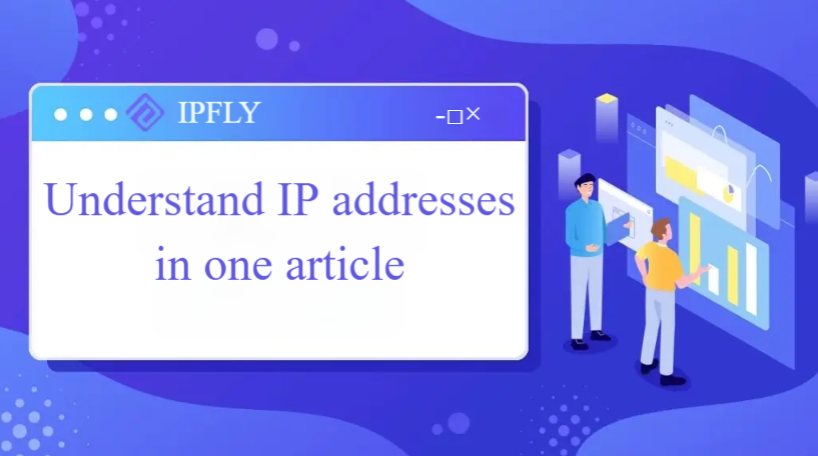IP address is like a “network door number”, imagine you buy online, the courier needs to know your address in order to deliver the goods, and the Internet devices (such as cell phones, computers) also need an “address” in order to transfer data to each other! –This is the IP address. It consists of a string of digits that uniquely identifies a device on the network. By 2025, there will be more than 45 billion connected devices in the world, and IP addresses have become the “infrastructure” of the digital world.

Why is IP address important?
1. Without IP address, the network will be “lost”.
– The basis of data delivery: Just like courier needs a delivery address, when you send a message on WeChat or swipe a video, the packet of data must find the other party’s device through the IP address. For example, if you visit Baidu, your cell phone will send a request to the IP address of the Baidu server in order to open the web page.
– Uniqueness Guarantee: The IP address of each device is not duplicated to avoid data transmission errors (e.g., your video call will not be mistakenly transmitted to your neighbor’s cell phone).
2. The “gatekeepers” of safety and security
– Blocking Danger: The firewall recognizes and blocks suspicious access by IP address. For example, the system will mask IP login requests from high-risk areas to protect your account.
– Trace the problem: If the network suddenly slows down, technicians can analyze the IP address to find the source of the problem (e.g., a device is taking up a lot of bandwidth).
3. The “invisible assistant” for smart living
– Smart Home Connectivity: The smart speakers and cleaning robots in your home communicate with each other via IP addresses. For example, if you say “turn on the lights”, the command will be sent to the lamps precisely through the IP address.
– The key to smooth video: When watching video, the platform will assign the nearest server according to your IP address (e.g. if you are in Shanghai, the system prioritizes connecting to nodes in Hangzhou) to reduce lagging.
4. “New trends” in the future of the Internet
– IPv6 popularization: Traditional IP addresses (IPv4) are no longer sufficient, the new version of IPv6 can provide massive addresses to support more devices to access (e.g. in the future, each street light may have a separate IP).

3-minute IP address checking
Method 1: One-click inquiry from mobile phone/computer
– Mobile:
After connecting to WiFi, go to “Settings” → “Wireless Network” → click the name of the connected WiFi.
Find “IP Address” or “Network Details” (varies slightly by phone location).
– Computer (Windows):
Press “Win+R” on your keyboard, type in cmd and enter.
Enter ipconfig and find the line “IPv4 address”.
– Computer (Mac):
Tap the Apple icon in the upper left corner of the screen → “System Settings” → “Network”.
Select the currently connected network (e.g. WiFi) to see the IP address.
Method 2: Browser Quick Query
Open Baidu and search for “My IP” to find your public IP address and approximate geographic location (e.g. “Shanghai, China”).
Method 3: Advanced Tools (for techies)
– Command Tools: – ping URL: Tests the connectivity of your device to the target server.
– tracert URL: See which routers the data has passed through (ideal for troubleshooting network delays).
– Packet capturing software: such as Wireshark, which analyzes IP addresses in network traffic in detail.
Answers to Frequently Asked Questions
Q1: Will the IP address reveal my address?
– Not quite: Public IP can only locate to a city or area (e.g. “Haidian District, Beijing”), not to a door number. However, it is recommended to use a proxy IP, such as IPFLY, or privacy mode to browse the web to further protect your privacy.
Q2:Why does my IP address change so often?
– Dynamic Assignment Mechanism: Home networks are usually assigned IPs (Dynamic IPs) automatically by the operator, which may change when you reboot the router or after a certain period of time. Enterprises or servers often use fixed IPs (static IPs).
Q3:What is the difference between an IP address and a “web address”?
– Simplified vs. Original: Web addresses are human-friendly aliases that are converted to IP addresses when actually accessed.
The IP address is the “silent cornerstone” of the Internet, and it is used for everything from chatting and sending pictures to smart homes. Knowing how to look up IP addresses can optimize your Internet experience and increase your security awareness. As technology advances, IP management tools (such as IPFLY’s dynamic resolution system) are making address allocation smarter, laying the foundation for the Internet of Everything.


